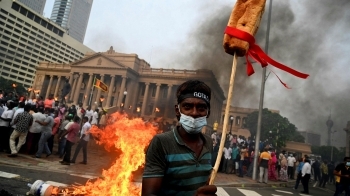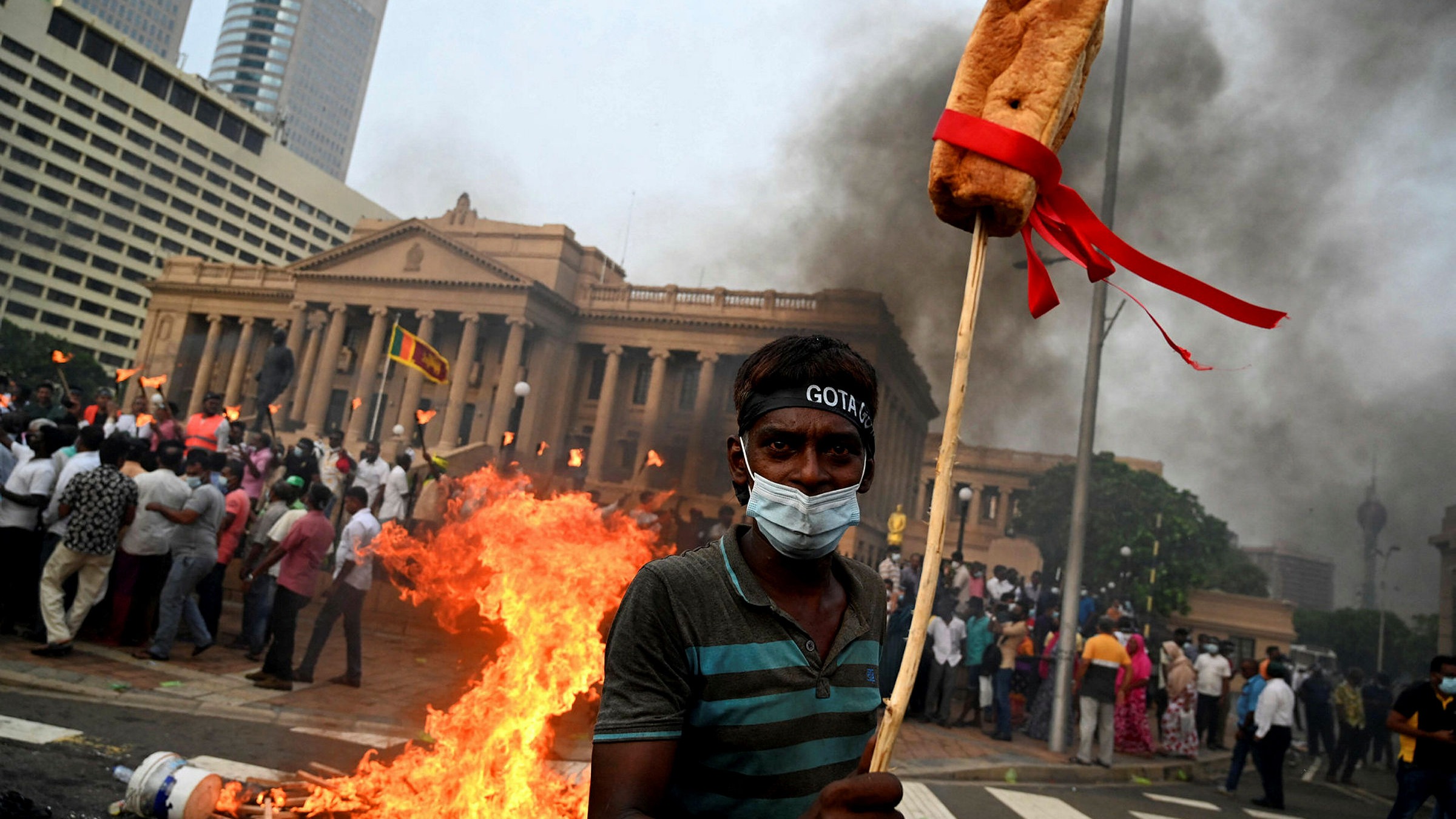
.jpg) Lancy Lobo
Lancy Lobo

In a webinar organised by SJES (South Asian Conference), the ground reality in Sri Lanka vividly came to light. The existing economic crisis was sharply brought into focus with the rise in prices, rise in inflation levels, lack of essential commodities like gas, fuel, electricity and medicines on the one hand, and on the other, loss of jobs, income, and so on. Those who have money, have no way to procure the above items, and those who have no money are literally on the street.
Those living in North East Sri Lanka have not just the above-mentioned ills to contend with but they are tired of the internal war, tsunami among other things. Mostly the sufferers are women, children, fisher folk, carpenters, restaurant-owners, cooks, and waiters. The situation was such that instead of eating three times a day they could only get two times meals.
In the up-country, refugees and those working in tea gardens were the most affected. The women (war widows), and women-headed households working in garment industry have to work during night hours as electricity is partially available only during the nights.
Those women who had no jobs are forced to migrate.
Social analysts studying the situation opine that the current situation is the severest economic crisis since Independence. In effect, this economic crisis has also become a political crisis. Multiple factors have contributed to this catastrophe/predicament: the debt trap and the fall of GDP since 2012 are major factors. The government, instead of investing borrowed money towards sustainable development, used the money to fund mega projects like building port cities. Moreover, tax cuts since 2003 have also adversely affected tax returns. The unfortunate attack during Easter, and the Pandemic (Covid-19) have also negatively affected the tourism industry, which was a major source of foreign currency coming into the country. To make matters worse, the Sri Lankan rupee has devalued considerably.
The people of the country are very much disillusioned by the ruling regime headed by Prime Minister Mahinda Rajpaksha, and crowds are milling on the streets asking for his resignation. They are also enraged by the blatant corruption and the wealth amassed by the Ministers’ families.
India has magnanimously extended economic help to tide Sri Lanka’s current economic crisis, however, this will not last for more than two months. Urgent relief work is the call of the hour.
The question is how such relief work can be done. One solution could be to collect money to be sent to people, but there are no essential food items available in Sri Lanka. The policy of the regime to do away with chemical fertilisers, which fetched the farmers three times the crops, in favour of organic farming has hit food production severely. Unfortunately, organic farming has drastically reduced food production by two-thirds leading to shortage of essential food grains and dietary items. Thus relief work has necessarily to do with doling out food items.
The people irrespective of their different religions (Buddhists, Hindus, Muslims and Christians) have come together to protest. Though one is aware of the manner in which the Buddhist nationalism or Sinhalese nationalism was promoted, yet today the Buddhist monks too are protesting. It is apparent that the only religion that exists in the country is ‘hunger’!
The Buddhist (Sinhalese) nationalism, and the divide and rule policy coupled with the causes mentioned above, have created the present crisis in Sri Lanka. The protestors irrespective of their religious affinity or their ethnic groups have realised the game of the political leaders. In fact, people want to prevent the Rajapaksha family from fleeing the country, rather they want him to resign and let the law take its course as well as reclaim the accumulated loot of the past years. Every citizen has become deeply aware of this fact. The reality is that fascism of the regime springing from ultra-nationalism or hyper nationalism has created this mess by putting people on the road without food.
It is said that no man is an island, but every person is an integral part of the continent. As Hemingway states, do not ask for whom the bell tolls, it tolls for thee! The existing situation in this tiny island nation has lessons for India. The hyper nationalism prevailing in India for the last eight is reflected in today’s price rise, joblessness/unemployment, shortage of gas and fuel, inflation and lowered GDP.
The State in India is subservient to the market (corporate sector). Privatisation of education, health and other sectors of economy has created the above-mentioned situation in the country. All major developmental and human rights indices have fallen. Divide and rule strategy of hyper nationalists have created violence, lynching, harassment, persecution of minorities etc. What impact will this have on India’s economy sooner or later, is a serious matter to ponder over.
What has Hindu Rashtra done for Hindus? When elections come, Tribes, Dalits and OBCs magically become Hindus, after election they go back to their original status of Tribes, Dalits and OBCs.
The masses have come out on the streets and there is a ground swell. India too has been facing groundswell as in the case of farmers’ protest which went on for more than a year; Shaheen Bagh protests also continued for long against the CAA. However, these protests have by and large remained Sikh or Muslim prompted protests, the citizens of the country have not come together to protest as a body as it has happened in Sri Lanka today.